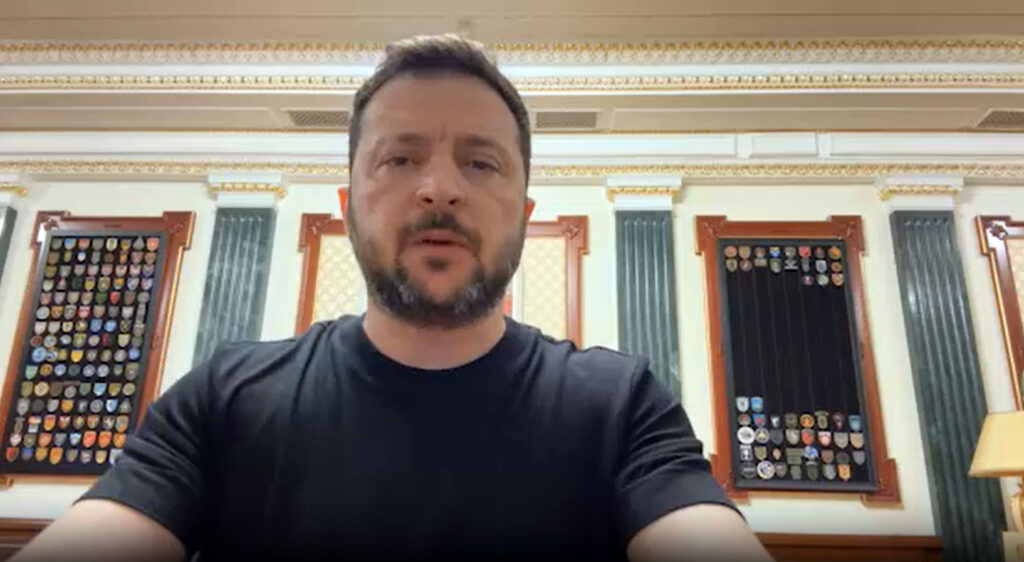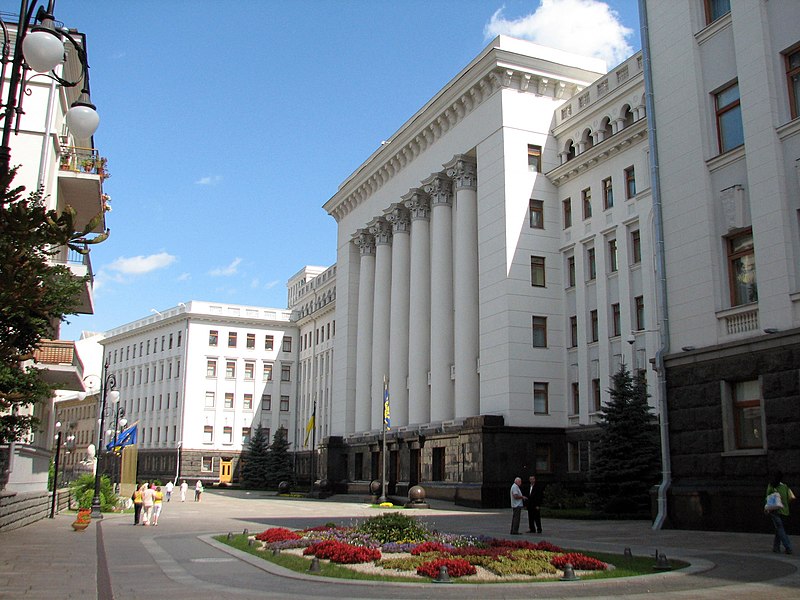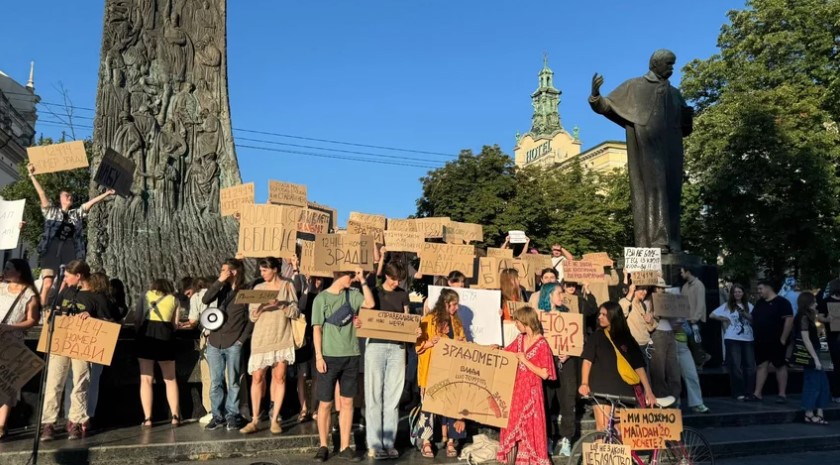
A law curbing anti-graft watchdogs has officially taken effect in Ukraine, triggering public protest and sharp criticism from legal observers and European officials. Submitted by the ruling Servant of the People party, which holds a majority in the Verkhovna Rada, the bill was passed on 22 July and signed into law by President Volodymyr Zelenskyy that same evening — a rare instance of rapid enactment.
Amid the ongoing Russo-Ukrainian war, the legislation strips essential powers from Ukraine’s two main anti-corruption institutions, NABU and SAPO, and shifts sweeping authority to the prosecutor general — a political appointee. In his only justification, Zelenskyy cited the need to remove “Russian influence” but failed to explain how undermining institutional independence achieves that.
Key anti-graft watchdogs stripped of independence
Law No. 12414 was officially published on 23 July in the Rada’s Holos Ukrainy newspaper, granting it full legal force. As a result, the prosecutor general now has the authority to reassign investigations from the National Anti-Corruption Bureau of Ukraine (NABU) to other law enforcement bodies, issue binding written instructions to NABU detectives, serve as the effective head of the Specialized Anti-Corruption Prosecutor’s Office (SAPO), and unilaterally close top-level corruption cases.
The law passed with 263 votes in the Rada, overwhelmingly backed by Zelenskyy’s majority on 22 July.
In addition, SAPO’s procedural autonomy is severely curtailed. The law removes the agency’s ability to determine NABU’s jurisdiction in exceptional cases, strips its head of the right to resolve jurisdictional disputes, and prevents SAPO leadership from altering appellate or cassation complaints submitted by its prosecutors. Transparency International Ukraine stated that the law is an attack on anti-graft safeguards and warned it dismantles the foundations of prosecutorial independence.
Explore further
Abuse of power: Ukraine’s Civil Anti-Corruption Council urges Zelenskyy to veto new law undermining anti-corruption system
EU sounds alarm
The law was authored and pushed forward by MP Maksym Buzhanskyi, a member of Zelenskyy’s Servant of the People party. It introduces sweeping amendments to Ukraine’s Criminal Code and bypassed standard parliamentary procedures. Critics argue it violated Article 116 of the Verkhovna Rada’s regulations by radically altering the subject of the original legislation.
European Commission spokesperson Guillaume Mercier stated that the EU is concerned about Ukraine’s recent actions regarding NABU and SAPO.
EU Commissioner for Enlargement Marta Kos said she was “seriously concerned” over the Rada vote.
“The dismantling of key safeguards protecting NABU’s independence is a serious step back. Independent bodies, like NABU [and] SAPO, are essential for [Ukraine’s] EU path. Rule of Law remains in the very center of EU accession negotiations,” she wrote on X.
Newly appointed Deputy Prime Minister for European Integration of Ukraine, Taras Kachka, assured Kos that the Ukrainian government remains committed to its anti-corruption obligations.
Cities erupt in protest after Rada passes the law
The law’s passage sparked mass protests in Kyiv and multiple other Ukrainian cities including Lviv, Dnipro, Odesa, and Ivano-Frankivsk late on 22 July. Demonstrators accused Zelenskyy and parliament of dismantling Ukraine’s most trusted anti-corruption structures.
Explore further
From Lviv to Odesa: Ukrainians take to streets to save anti-corruption agencies
Zelenskyy offers no explanation beyond ‘Russian influence’
Despite public backlash and mounting criticism, Zelenskyy signed the bill into law, giving only a vague and unsupported rationale. In a video address on 22 July, he said that “anti-corruption infrastructure will work, but must be cleared of Russian influence.” He added that justice must become “more visible” and said cases involving fugitive officials should finally be pursued. However, he gave no details on how curbing anti-graft watchdogs would aid in countering Russian infiltration.
Intelligence raids, spy accusations, and political timing
Before the legislative push, starting 21 July, the SBU security service and Prosecutor General’s Office carried out approximately 80 searches targeting 19 NABU staff across multiple oblasts. Employees were accused of state treason, illicit trade with Russia, and acting on behalf of oligarchs. The State Bureau of Investigations simultaneously reopened dormant car crash cases involving NABU staff.
SAPO expressed concern that the SBU and prosecutor’s office had accessed covert investigative data, risking the exposure of classified operations. They warned that SBU actions could disrupt ongoing probes by revealing details of undercover measures.
According to Ukrainska Pravda, an anti-corruption official speculated that the campaign may have been aimed at blocking an imminent indictment against
Tymur Mindich, co-owner of Zelenskyy’s former media company Kvartal 95.
Why watchdog independence mattered
NABU and SAPO were formed in 2015 after the 2014 Revolution of Dignity to combat entrenched elite corruption. NABU was empowered to investigate top-tier officials including the president (if no longer in office), ministers, MPs, judges, and high-ranking bureaucrats. SAPO was designed to prosecute those cases autonomously, free from political oversight. The agencies’ independence was a central requirement for Ukraine’s EU integration.
Notably, in one of his early invasion speeches, Russia President Vladimir Putin explicitly
criticized NABU and SAPO.
Tatarigami, a prominent Ukrainian analyst, wrote that the law creates mechanisms to derail or redirect any investigation that threatens presidential allies — not only under Zelenskyy but under any future president. He warned that the logic of citing “Russian influence” as a justification is flawed, since agencies like the SBU have themselves been infiltrated by Russian agents in the past.
Update: OECD warns Ukraine risks losing defense investment
According to European Pravda, the OECD has warned Kyiv that the law undermining NABU and SAPO could jeopardize both Ukraine’s OECD accession and its appeal to international investors.
In a letter dated 22 July, Julia Fromholz, head of the OECD Anti-Corruption Division, told the president’s office that law No. 12414 weakens anti-corruption safeguards and risks breaching Ukraine’s obligations under OECD standards.
She urged Zelenskyy to veto the bill or — if already signed — push for amendments to restore institutional independence. Fromholz warned that failure to act could threaten Ukraine’s prospects of joining the OECD and harm confidence among defense and reconstruction investors.
New draft law aims to cancel restrictions on NABU and SAPO
A new bill has been prepared in the Verkhovna Rada to cancel the restrictions on NABU and SAPO introduced by the controversial law No. 12414 adopted on 22 July. The initial law limits the powers of Ukraine’s anti-corruption bodies under the pretext of regulating wartime investigations into missing persons.
MP Inna Sovsun (Holos)
announced the new draft on Facebook. She stated that since President Zelenskyy has already signed the original law, the only way to stop its effects is to pass new legislation that explicitly repeals its provisions.
You could close this page. Or you could join our community and help us produce more materials like this.
We keep our reporting open and accessible to everyone because we believe in the power of free information. This is why our small, cost-effective team depends on the support of readers like you to bring deliver timely news, quality analysis, and on-the-ground reports about Russia's war against Ukraine and Ukraine's struggle to build a democratic society.
Become a patron or see other ways to
support.



